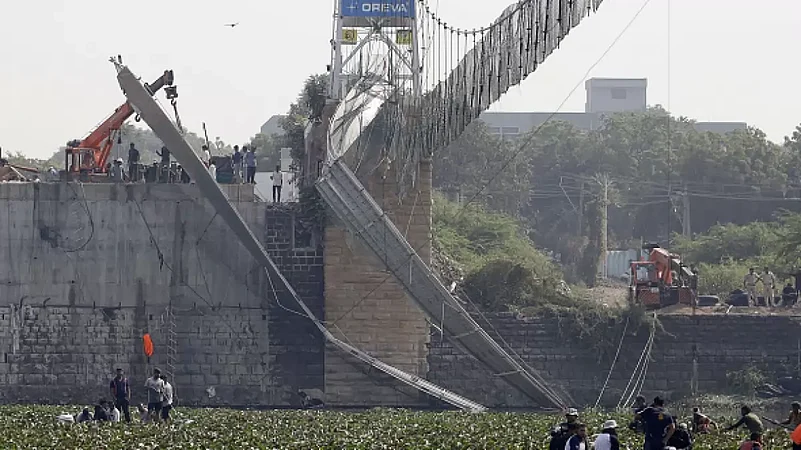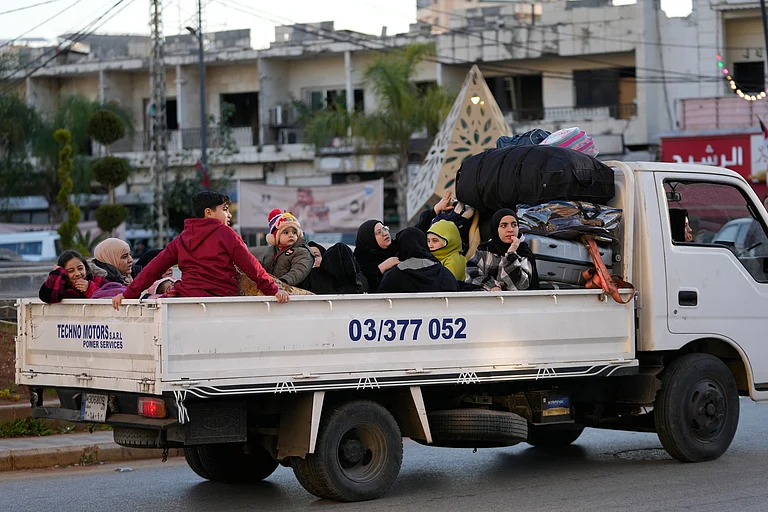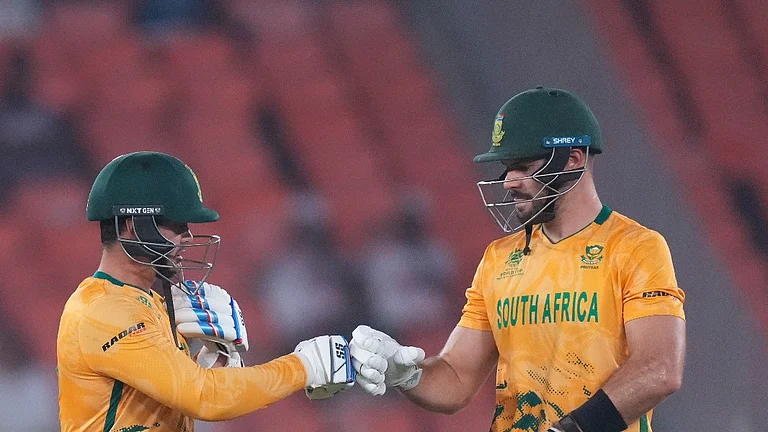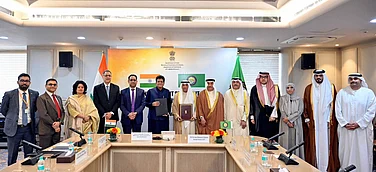How does one recover from losing a loved one in an untimely death on a fateful day? Does the grief ever subside, or do people just learn to live with it? What happens when they learn that it was somebody else’s fault that caused their loss? Is justice by the law and order enough to move on?
On October 30, 2022, a 100-year-old bridge in Gujarat’s Morbi collapsed into the river beneath it, taking hundreds of people along. A total of 135 people died in the mishap, including 55 children. Overcrowding and negligence by the promoters of the bridge came out as the main reasons behind the collapse. Today marks a year of tragedy, a year of grieving for all those families who lost their close ones in the accident.
People living in the town have not been able to move on. The grim day, which was supposed to be a typical Sunday outing, is now etched in their memories.
Jhulto Pul, the name given to the British-era cable-stayed bridge across the Machchhu River, was a heritage structure for Morbi, a small town about 200 kilometres away from Ahmedabad. It was designed like the Ram and Lakshman jhulas of Uttarakhand's Rishikesh and inaugurated in 1879. The bridge had gone through several rounds of restoration and was only recently opened to the public on October 26 – four days before the tragedy. It was opened without proper fitness certificates.
Due to Diwali vacations, the reopening of the historical bridge drew a huge crowd – more than it could sustain. The upstream steel cable snapped and Jhulto Pul plunged into the river while nearly 400 people were still on it.
The Gujarat government had appointed a five-member SIT to probe the collapse and it submitted an interim report in December last year, in which it found several lapses in repairs, maintenance and operation of the structure by the Oreva Group (Ajanta Manufacturing Ltd), whose Managing Director Jaysukh Patel is the main accused in the case and is currently in jail.
The investigation was quick, considering the scale of the accident and the fact that it happened just a month before the Gujarat Assembly elections.
Ten people were named as accused in the case, including Patel, two managers of his firm, and two sub-contractors who had repaired the bridge, three security guards and two ticket booking clerks. They were charged under the Indian Penal Code (IPC) sections for culpable homicide not amounting to murder, act endangering human life, rash or negligent act, etc.
In January this year, Oreva Group told the Gujarat High Court that it was ready to pay compensation to those killed and injured in the bridge collapse. The company was directed by the court on February 22, 2023, to pay Rs 10 lakh as interim compensation to the kin of each of the 135 deceased, and Rs 2 lakh to each of the 56 people injured.
Meanwhile, three security guards who were manning the Jhulto Pul and two clerks manning ticket windows at the time of the accident have been granted bail by the high court. Patel continues to be in jail. The Gujarat government also dissolved the Morbi municipality due to its “failure” to discharge its duties.
The SIT, in its final report released on October 9, indicted Oreva Group and Morbi municipality chief officer for outsourcing the repair work to a “non-competent agency” that led to the tragedy.
However, the compensation and trials can bring only so much justice to the families of the victims and the survivors who continue to live in trauma.






















